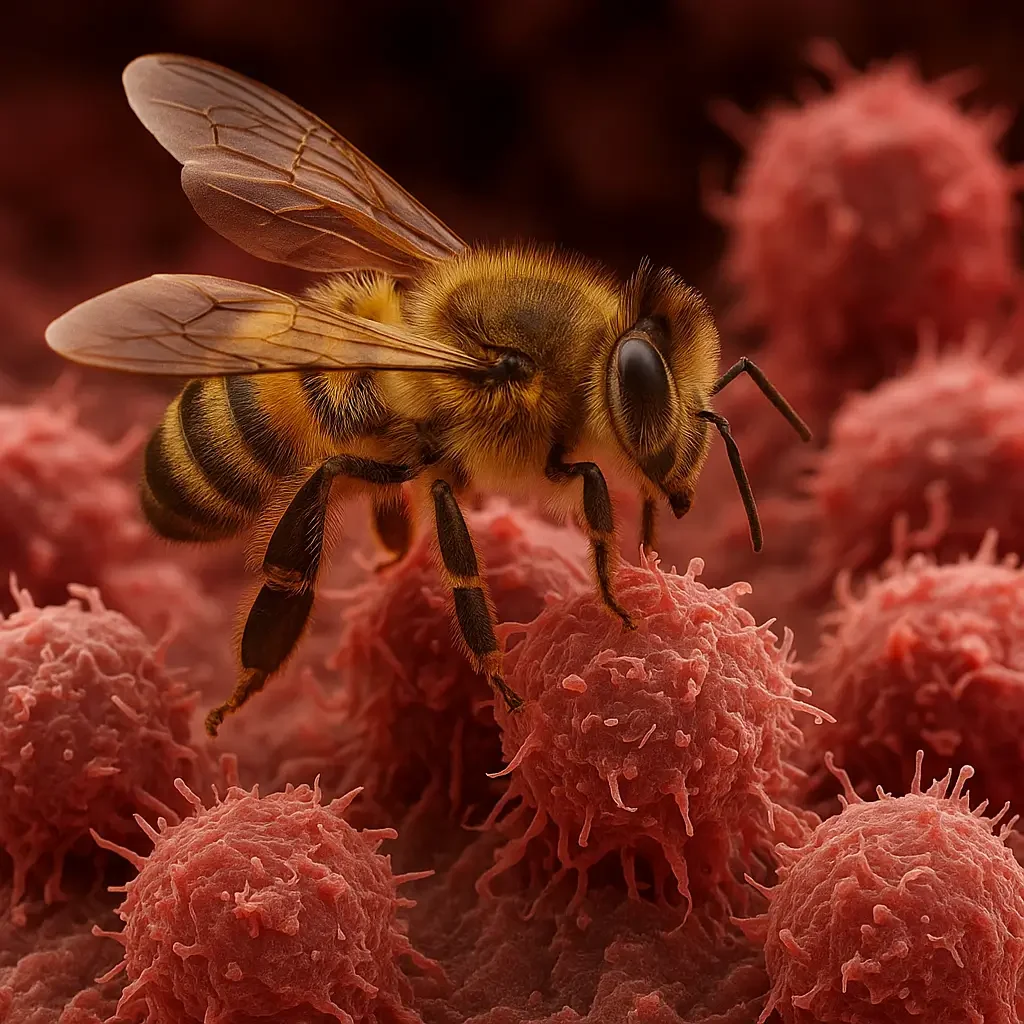Australian researchers have revealed that honeybee venom kills aggressive breast cancer cells in lab tests with minimal damage to healthy cells. The groundbreaking study was led by Dr Ciara Duffy at the Harry Perkins Institute of Medical Research in Western Australia and published in Nature Precision Oncology.
Dr. Duffy and her team used venom from 312 honeybees and bumblebees collected in Australia, Ireland and England to test its effects on various breast cancer subtypes. These included hormone receptor-positive HER2-enriched and the particularly hard-to-treat triple-negative breast cancer.
The team focused on a compound called melittin, a small peptide found in honeybee venom. Researchers found melittin highly effective at destroying cancer cells’ membranes within 60 minutes while causing minimal harm to normal breast cells.
Additionally, melittin disrupted chemical signals crucial for cancer growth. Within 20 minutes, it significantly suppressed the epidermal growth factor receptor, often overexpressed in triple-negative breast cancer and the HER2 receptor in HER2-enriched cancer.
Dr. Duffy also tested combining melittin with the chemotherapy drug docetaxel. The pairing showed remarkable success in reducing tumor growth in mice, pointing to potential future applications in cancer treatment.
Western Australia’s Chief Scientist, Professor Peter Klinken, praised the research. The team extracted venom by sedating the bees and carefully removing the venom barbs for dissection. Notably, venom from bumblebees failed to produce similar effects even at higher concentrations. Although promising results, researchers emphasized that further testing is necessary to determine safe doses and delivery methods before clinical trials begin.








